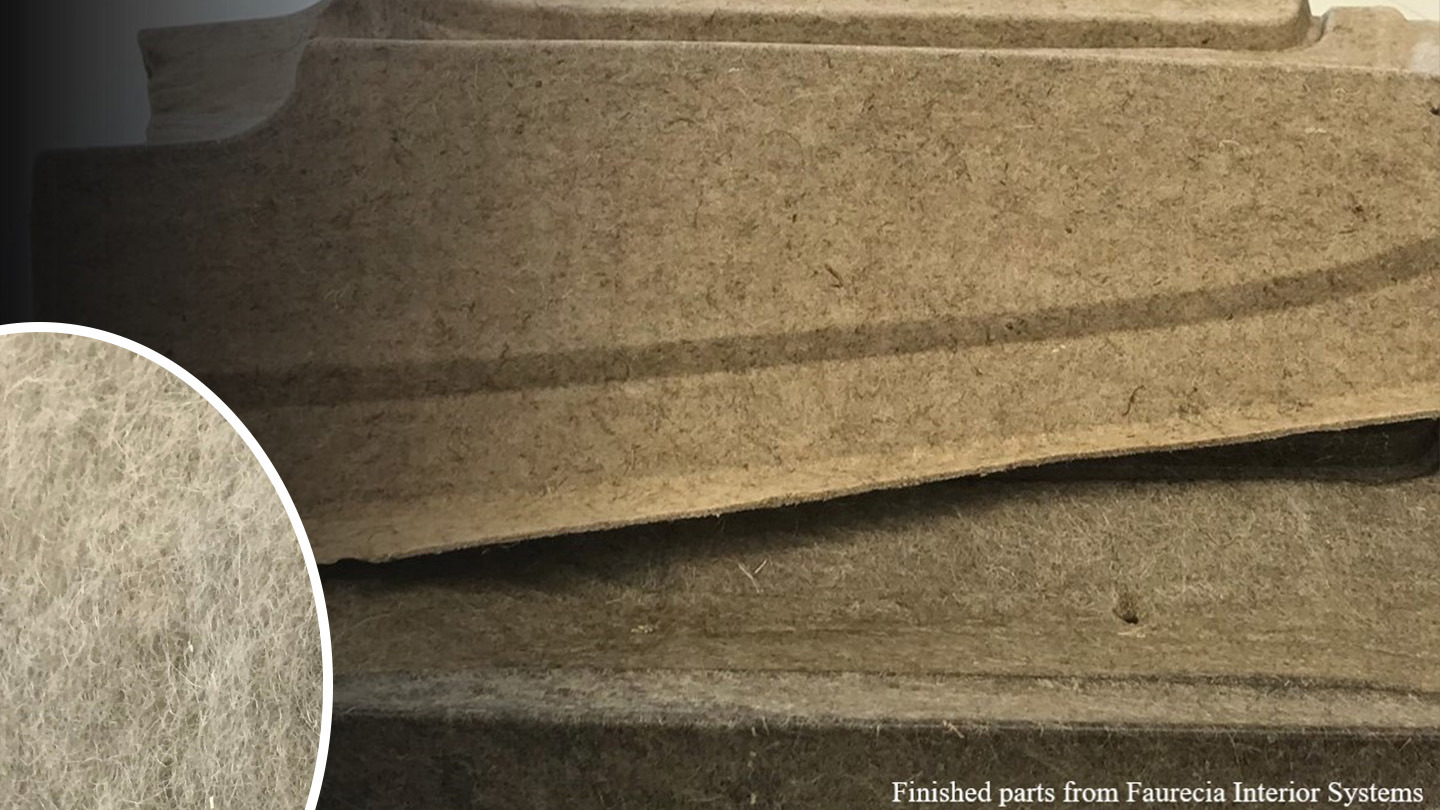New composite material reinforced with natural fibres soon in our cars
2021-03-31

The results look promising, according to the research that doctoral student Anjum Saleem now presents in her doctoral thesis. In her research project, she has developed a new innovative composite material with bast and basalt fibres as reinforcement in a hybrid composite. The material is completely new in both research and industry.
“The development of renewable raw materials and technologies is driven by a growing interest from the automotive sector to reduce the carbon footprint, environmental pollution, and utilisation of mineral resources along with strict rules regarding the management of used materials in cars,” explained Anjum Saleem.
Practical applications are important
The project investigated many different types of fibres with different properties, ranging from thin and flexible polypropylene fibre, thin and brittle basalt fibre, and coarse and hard bast fibre. The question was whether it would be possible to manufacture a composite with homogeneous distribution of fibres, and without damaging the brittle basalt fibre in the process. The next question was whether it was possible to improve the mechanical properties of composites reinforced with bast fibres by the addition of basalt fibres. The processability of the composite for practical applications was also an important point of interest.
Confirmed promising results
It turned out that the bast/basalt composite clearly had better mechanical properties compared to composite reinforced only with bast fibre. The samples produced on both a lab scale and an industrial scale confirmed the promising results.
The new composite meets the standard in terms of flexibility, tensile strength, and shock absorption, which is a key requirement in the automotive industry. But the properties of the material are also suitable for applications in other areas where it must withstand load and shock absorption, for example in the construction and transport industry.
A growing interest in the automotive industry
There is a growing interest in the automotive industry to reduce carbon dioxide emissions, environmental pollution, and the utilisation of mineral resources. This, together with strict rules on and requirements for end-of-life vehicles, drives the development of renewable raw materials and technologies. Hybridisation of bast fibres with basalt fibres can thus be a sustainable and environmentally friendly solution to improve the mechanical properties of the bast fibre-reinforced composites for various applications in the automotive industry.
However, significant technical considerations are required with regard to applications, especially with regard to the use of the material in structural parts.
What is the next step in your research?
“Future research should focus on properties such as crack resistance, water absorption, flame safety and shock absorption. The development of completely bio-based composites is one of the new goals in the automotive sector. Basalt fibres are easier to recycle than glass fibres. Then, thermal degradation of bast/basalt-worked composites should also be investigated in comparison with bast/fibreglass-reinforced composites to explore their respective effects on the environment,” concluded Anjum Saleem.
The project is in line with the global goals 12, Responsible consumption and production, and 11, Sustainable cities and communities.
Read more
Title of the doctoral thesis: Development and characterisation of bast and basalt fibre hybrid polymer composites for automotive applications
Anjum Saleem defended her doctoral thesis at the University of Borås within the research area Resource Recovery on 25 March 2021.
Main supervisors:
Professor Mikael Skrifvars
Professor Luisa Medina
Assistant Supervisor: Docent Lena Berglin
Solveig Klug
Faurecia Interior Systems

